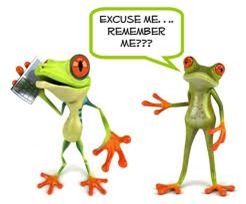Two relevant facts:
1) My actions always speak louder than my words
2) What I spend time on communicates what I find important
Regarding text messaging, here are 10 observations:
- Nearly everyone texts, including my Grandpa (there are around 5 billion cell phone subscriptions out of 6.8 billion humans and more than 2/3 have a text messaging service)
- Texting is amoral and not rude in and of itself
- Texting works great for conveying information
- I personally text quite a bit
- Texting can be used as a neat tool to encourage others
- Texters probably don’t mean to be rude but sometimes are (including myself)
- In certain contexts, texting can be very rude and even hurt peoples’ feelings
- Therefore, for conscientious folk, it’s important to think through this issue
- Whenever I text, I am communicating by my actions that texting is – for the brief moments I’m engaged in that activity – more important than anything or anyone else (see fact 2 above)
- Jesus never sent a single text message (nor did any human before 1992). Therefore, instantaneous telepathic communication must not be that important.
Breaking it down, I see two types of texting:
- Texting for information (mentally engaged)
- Texting for conversation (emotionally engaged)
It’s easier for people to forgive us ignoring them when we’re texting for information.
Regarding the second category though, ever been in a group where everyone was conversing except one loner who’s texting? I’ll admit, I’ve been that one loner before. You know, the guy who looks up every now and then to convey the impression he’s still engaged? The sad thing is I’m only really engaged the few times I throw in my two cents to the group, then I put the phone down. But as soon as someone else starts talking I look back down to my phone. I’m multi-tasking people.
What does this communicate to others in the group? They do notice. My actions are telling them I don’t care what they think or say, even though that’s not true.
The moral of this post is to warn myself (and in turn, perhaps others) to realize my actions convey messages.
Just because my mouth isn’t saying anything doesn’t mean I’m not saying anything. In fact, I might be saying something I would never utter audibly.
 When I text around others, my actions shout loud and clear, "I’m with you physically because I have to be, but I’m with them mentally because I want to be."
When I text around others, my actions shout loud and clear, "I’m with you physically because I have to be, but I’m with them mentally because I want to be."
It’s crazy, I may die a thousand deaths before verbalizing something like that in real life (knowing it would be hurtful), but not hesitate in the least to say it over and over again through my actions. And peoples’ feelings are often hurt. By me.
Here are problematic facts:
-
When texting, I’m not fully engaged with the people in my presence
-
When texting, I’m communicating to people in my presence they’re temporarily not as important as the invisible ones I’m texting with (this is true by definition. people around me may be understanding, cut slack, not get upset, realize the texts are “necessary,” but that doesn’t change the fact I’m still communicating this message)
-
When texting, I’m (probably) distracting others and raising curiosity about who I’m texting with and what I’m texting about
-
When texting, if I don’t bring those in my presence into the loop, my actions (probably) are communicating distrust and secrecy
All this begs the question, how should I change?
Text when alone. I can’t be rude then (I don’t think…?)
Ignore texts when with others or excuse myself to a private location. Kids do this all the time in school: "I need to go to the bathroom" is code for, "There’s an important text I need to send or read."
Let others know who I’m texting with and why, allow them into my life. I was in a group recently and received a text that read, “Tired?” I punched back, “No.” Everyone stopped to look at me when I pulled my phone out. It got quiet in the room. In this situation I felt forced to explain myself (usually not the case). So I did. I told everyone, “Hey, I just got this one word text message that read, ‘Tired’ so I sent them a one word message back, ‘No.’” Everyone laughed and we went on. By not explaining I would have left people in the dark; they would have been curious (at best) and felt excluded or hurt (at worst). The great thing about this tack is it strengthens the ties of those in our presence.
Re-evaluate who I’m spending time with and why. Perhaps we need to think again about why we feel such a need to interact with those outside our physical proximity. This will be the subject of my next post. Stay tuned!
So, when is texting rude? When should I not text?
In the state of Kansas, where I live, restrictions have been placed on texting while driving. Why? Because it could result in physical injury to others. Etiquette-wise, perhaps I should come down on the same side of the fence: refraining from texting when it could result in emotional injury to others. Of course, that’s a value judgment…
Silly? Too harsh? What do you think? I’m just realizing when I text, signals are being received closer than the tower.
For a more secular rule of thumb on when texting is appropriate, check out The Bathroom Rule.